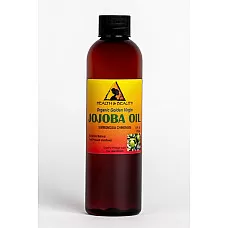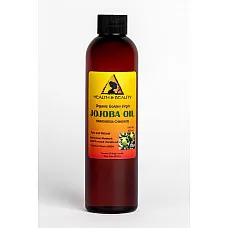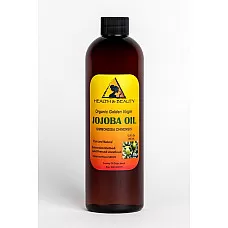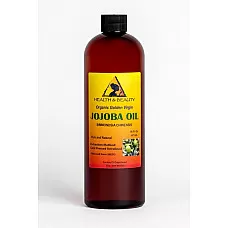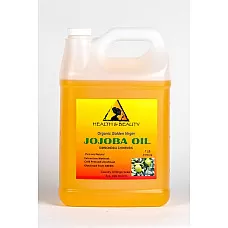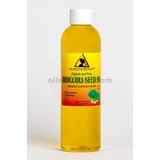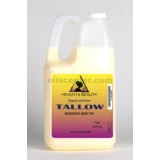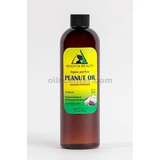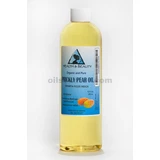$0.00
Checkout
Physical properties and composition of jojoba oil
One of the unique properties of jojoba oil is its resistance to oxidation, and due to this quality, jojoba oil is very often used in the production of cosmetics and in home cosmetology. Also, this valuable natural product is widely used in the manufacture of medicines, lubricants, organic fertilizers, and in some countries it is even used as an alternative to diesel fuel. For culinary purposes, jojoba oil is not used, since it is practically not absorbed in the intestines.
Jojoba oil is essentially a liquid wax, which is obtained by cold pressing from small, acorn-like fruits of Symondsia chinensis (more precisely, from its seed-nuts, enclosed under the shell of the jojoba fruit and containing at least 50% of this valuable cosmetic oil).
Golden-yellow transparent jojoba oil at room temperature is a thick, almost odorless liquid (due to the lack of its own aroma, this oil is an ideal base for creating cosmetics and perfumery products containing essential oils). Below 0 degrees, jojoba oil solidifies, loses its transparency and turns into a waxy paste (the melting point of jojoba oil is about +10 oC).
Not containing triglycerides, unlike most vegetable oils, jojoba oil has a high content of long-chain wax esters, most of which are formed by monounsaturated Omega-9 linear fatty acids and Omega-9 monounsaturated linear fatty alcohols (it is this biochemical feature of jojoba oil that determines its light, non-fatty texture) ...
There is also a high concentration of vitamin E in jojoba oil, which has an anti-inflammatory effect, stimulates the natural regeneration of skin cells, has a moisture-retaining property and determines the resistance of this vegetable oil to oxidation. It is thanks to this, which prevents premature aging and is an effective vitamin in the fight against free radicals, that jojoba oil, with regular cosmetic use, allows you to preserve freshness and youthfulness of the skin for many years (it should be noted that the resistance of jojoba oil to oxidation is influenced not only by the high content in this product vitamin E, and a significant amount of ceramides in jojoba oil).
In the fatty acid composition of jojoba oil, the leading positions are occupied by docosahexaenoic omega-3 acid, gadoleic, erucic and oleic fatty acids.
The ability of jojoba oil to give the skin firmness and elasticity is largely due to the presence of a special protein in the composition of this product, very similar in its properties to the fibrillar protein of the skin collagen.
Cosmetic Uses of Jojoba Oil
Possessing a unique chemical composition that has a beneficial effect on the condition of the skin, hair and nails, jojoba oil has for many years been not only an indispensable ingredient in a variety of factory cosmetic products, but also today is an indisputable favorite among the fairer sex who devote a lot of time and effort to caring for their appearance.
Due to its successful and harmonious compatibility with a huge variety of cosmetic ingredients, jojoba oil is often used in the cosmetics industry as a complete and effective substitute for mineral oils, lanolin, triglycerides and artificial esters, and due to its high oxidation stability, it is often used as a preservative additive. perishable cosmetic products. It is also worth noting that due to the absence of its own smell, jojoba oil is a very common transport (base) oil in aromatherapy, which allows you to keep the aroma of any essential oil dissolved in it unchanged.
Natural, environmentally friendly jojoba oil has long been and traditionally used in beauty salons and home cosmetology both in pure form and in a mixture with other vegetable base oils (most often in a 1: 1 combination with apricot, peach, almond, oils, oils grape seed, avocado oil). Also, jojoba oil is widely used to enrich the composition of a variety of hand-made creams, lotions, tonics, masks, balms, conditioners, lip balms, soaps.
Due to its rather thick consistency, it is recommended to use jojoba oil in its pure form (undiluted) only for hair care and application to small areas of the skin (for lubricating skin areas affected by a dermatological disease, for treating skin cracks on the heels or for applying to rough skin areas around the knees, soles of the feet or elbows).
It should be noted that jojoba oil is one of the few "universal" vegetable oils that are suitable for the care of almost any type of skin. But this vegetable oil is most effective in the care of dry, dehydrated, flaky, flabby, aging, inflamed, chapped or chapped skin, as well as sensitive skin prone to irritation. The ability of jojoba oil to normalize the oiliness of the skin of jojoba oil, its bactericidal and anti-inflammatory properties, as well as its non-comedogenicity (jojoba oil does not cause clogging of the mouth of the hair follicle with horny masses), also allow the use of this useful cosmetic product in the care of combination skin and problem skin prone to the formation of blackheads and comedones.
-
👍 New items in Jojoba Golden Oil 2026
-
💯 Bestsellers in the Jojoba Golden Oil 2026
-
💵 Cheapest Jojoba Golden Oil 2026
-
💰 Most expensive Jojoba Golden Oil 2026
-
✅ Most popular products in the Jojoba Golden Oil 2026
-
💵 Price range: from to Jojoba Golden Oil 2026
-
What distinguishes Jojoba Golden Oil from regular Jojoba Oil?
-
Can Jojoba Golden Oil be used on the face?
-
Is Jojoba Golden Oil non-comedogenic?
-
How should Jojoba Golden Oil be stored?
-
Can Jojoba Golden Oil be used in hair care?


